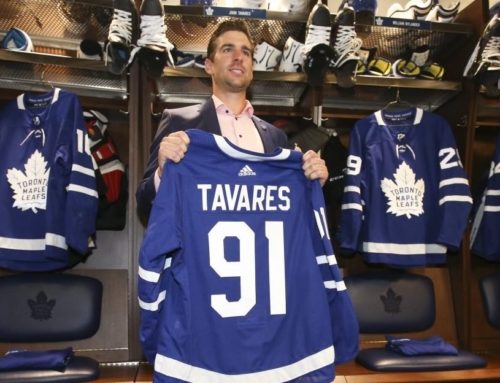
For LGBT people, June is a celebratory month in many parts of the world as annual Pride festivities take place. However, for LGBT people in Russia, June is a reminder of the oppression LGBT people still face in the country.
In June 2013, in advance of the 2014 winter Olympics held in Sochi, Russia enacted “anti-gay propaganda” laws. These laws were put in place as a means to penalize LGBT advocacy and prevent further protesting. In turn, the enactment of the laws has since brought about an increase in anti-gay violence as well as in increase in stigma towards LGBT people in the country.
Five years later, Russia is set to host another major international sporting competition: the FIFA World Cup. This has left FIFA, the governing body of the tournament, in a precarious position.
In recent years, FIFA has been embroiled in their own scandals. In 2015, top-level executives of the organization were facing corruption charges. More recently, the organization has faced widespread backlash for awarding the tournament to Russia for the 2018 games and Qatar for the 2022 games based on the lack of human rights laws each country has in place.
In an effort to curb this criticism, FIFA enacted new guidelines in advance of this years games that requires each host country to meet basic human rights standards. This supposedly includes zero tolerance for any discrimination based on sexual orientation. Still, it remains to be seen how exactly these new policies will be enacted now that the tournament is taking place in a country that is openly hostile towards LGBT people.
Given the current climate in Russia, Football Against Racism in Europe (FARE), FIFA’s anti-discrimination advisers, have issued a guide for minority groups travelling to the tournament that details what should and should not be done in the country. The guide warns against LGBT couples holding hands in public among any other public displays of affection.
Although FARE has said that they did not publish the guide with the intent of preventing minority groups from travelling to the country, the current climate in Russia has understandably kept a lot of LGBT football fans at home.
Still, amidst this increased caution from international fans, FARE has remained optimistic that Russian authorities will adopt an increased sense of liberalization through the course of the tournament in an effort to display hospitality to its international guests. However, this stance is likely to revert back to its conservative state once the tournament ends.
This leaves the question of what responsibility does FIFA hold to help advance human rights practices in the countries in which they operate. Qatar, the next host of the FIFA World Cup in 2022, has notoriously strict anti-LGBT laws that are punishable with jail time. Many critics have noted that with four years until the games take place, FIFA should take a stance and make it known to Qatar that if they intend to host this international event then they need to abide by some sort of international standard in regards to human rights practices.
The bid for the 2026 games was recently awarded to North America’s three-way bid between Canada, the United States and Mexico. This bid was only opposed by Morocco; a nation which boasts strict anti-LGBT laws that allow for jail time being given to anyone suspected of identifying as a member or supporter of the LGBT community. In light of this, FIFA stated in bidding documents for the 2026 games that “the member associations must also provide specific commitments and information on human rights and labor standards.” Although there is only speculation to guess at, many have surmised that the 2026 games were awarded to North America in part to to curb criticism garnered from the current Russian games and upcoming Qatar edition.
Still, one of FIFA’s biggest sponsors, McDonalds, has already said they will withdraw their support for the tournament following the 2018 games based on criticism drawn from the human rights abuses these host countries have exhibited. With this recent development, it seems to be in the best interest of FIFA to show greater expectations for its host countries in an effort to protect its own interests as well as the safety of its supporters. Although there is nothing FIFA can legally do to force their hosts to abide by human rights standards, the hope remains that going forward FIFA, along with other corporations, will realize what is at stake when business is conducted in places and with people that refuse to support the evolving social consciousness of the world at large.


